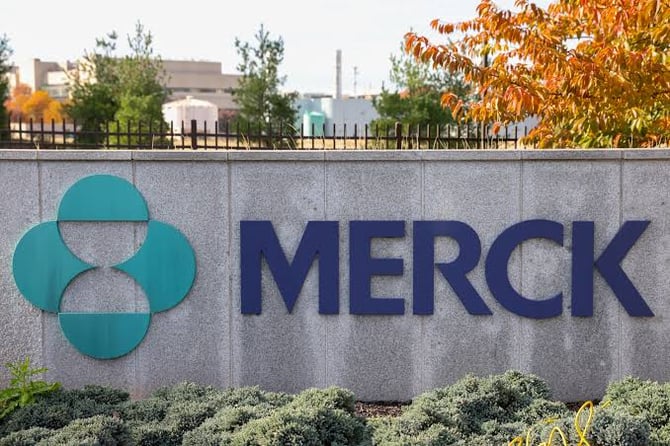Tariffs and Falling Vaccine Sales Dim Merck's Outlook
Merck has trimmed its full-year profit forecast, citing a $200 million hit from global tariffs and a one-time licensing charge. The vaccines titan now expects adjusted earnings between $8.82 and $8.97 per share in 2025, a notable downgrade from earlier projections.
The adjustment carries the weight of cross-border levies, particularly between the U.S. and China, where Merck has critical manufacturing and research hubs. The reduced new guidance does not yet include any impact from President Trump’s proposed pharmaceutical tariffs, which will surely also squeeze the sector.
Despite the softer outlook, Merck beat first-quarter expectations, reporting earnings of $2.22 per share on revenue of $15.53 billion, just ahead of the $15.31 billion consensus. Net income climbed to $5.08 billion, or $2.01 per share, up from $4.76 billion last year. Pharmaceutical sales fell 3% year-over-year to $13.64 billion, driven by a 41% decline in Gardasil revenue, which slid to $1.33 billion due to shipment halts in China.
Keytruda revenue increased 4% to $7.21 billion, slightly below expectations, as investors eye the drug’s looming patent expiry in 2028. Meanwhile, newer treatments like Winrevair and Capvaxive showed early promise.
What Does This Mean for Me?
With $12 billion already invested in U.S. manufacturing and another $9 billion committed by 2028, Merck is betting big on domestic production to navigate rising geopolitical tensions. Investors will be watching future performance guidancesclosely.

More News

Market Roundup: What Happened Yesterday and What Awaits Us Today (February 18)

Market Summary: What Happened Yesterday and What Awaits Us Today (February 16)

Market Summary: What Happened Yesterday and What Awaits Us Today (February 13):

Market Summary: What Happened Yesterday and What Awaits Us Today (February 12)

Market Summary: What Happened Yesterday and What Awaits Us Today (February 11):

Market Roundup: What Happened Yesterday and What Awaits Us Today (February 10)

Asian Markets Rise After Takaichi Election Win While US Futures Slip
